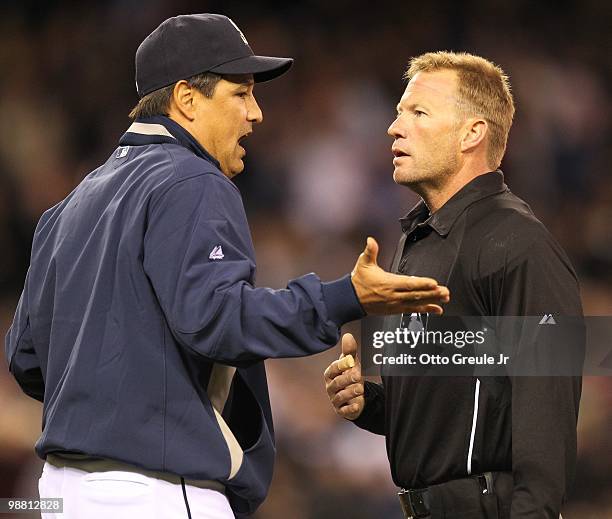Jim Wolf, the renowned Major League Baseball umpire, has played a crucial role in shaping the game's modern history. With decades of experience on the field, his expertise and dedication have made him one of the most respected figures in professional sports officiating. Whether you're a die-hard baseball fan or just discovering the game, Jim Wolf's story is one worth exploring.
As an umpire, Jim Wolf has been at the center of some of baseball's most memorable moments. His career spans over 30 years, during which he has worked in some of the most high-pressure situations imaginable. From World Series games to regular-season matchups, Wolf's presence on the field has been nothing short of iconic.
In this article, we will delve into the life, career, and legacy of Jim Wolf. You'll learn about his journey to becoming one of the top umpires in Major League Baseball, the challenges he faced, and how he became a symbol of fairness and professionalism in the sport. Let's dive in!
Read also:Kevin Harts Journey In Superhero Movies The Ultimate Guide
Table of Contents
- Biography of Jim Wolf
- Early Life and Career Beginnings
- Jim Wolf's Major League Baseball Career
- Key Moments in Jim Wolf's Umpiring Career
- Umpiring Philosophy and Techniques
- Challenges Faced by Umpires in MLB
- Jim Wolf's Impact on the Game
- Legacy and Recognition
- The Future of Umpiring in Baseball
- Conclusion
Biography of Jim Wolf
Personal Information
Before we dive into Jim Wolf's professional career, let's take a moment to understand the man behind the mask. Below is a summary of Jim Wolf's personal details:
| Full Name | James Michael Wolf |
|---|---|
| Date of Birth | April 15, 1960 |
| Place of Birth | Omaha, Nebraska |
| Current Residence | Scottsdale, Arizona |
| Family | Married with two children |
Early Life and Career Beginnings
Jim Wolf's journey to becoming an MLB umpire began in Omaha, Nebraska, where he was born and raised. From a young age, Wolf was passionate about baseball, often playing the game with friends in local leagues. However, his true calling came when he realized he had a knack for officiating.
After graduating from high school, Jim attended the Al Somers Umpire School, one of the premier training programs for aspiring umpires. His dedication and natural talent quickly caught the attention of instructors, who recognized his potential to excel in the field.
Wolf's early career saw him working in minor league baseball, where he honed his skills and gained valuable experience. It wasn't long before his exceptional performance earned him a spot in the Major Leagues, setting the stage for a remarkable career.
Jim Wolf's Major League Baseball Career
Breaking Into the Big Leagues
In 1990, Jim Wolf made his debut in Major League Baseball, becoming one of the youngest umpires to officiate at the highest level of the sport. Over the years, he worked his way up the ranks, eventually becoming one of the most respected umpires in the league.
Wolf's career highlights include working in numerous All-Star Games, League Championship Series, and World Series. His ability to remain calm under pressure and make critical calls has earned him praise from players, coaches, and fans alike.
Read also:Discover The Truth About Livvy Dunne Phone Number A Comprehensive Guide
Key Moments in Jim Wolf's Umpiring Career
Throughout his career, Jim Wolf has been involved in several key moments that have shaped the history of baseball. Below are a few standout moments:
- 1997 World Series: Wolf served as the home plate umpire during Game 4 of the World Series, a game that saw the Florida Marlins defeat the Cleveland Indians in extra innings.
- 2001 All-Star Game: As the crew chief, Wolf oversaw one of the most exciting All-Star Games in history, which ended in a 4-3 victory for the American League.
- 2009 World Series: Wolf was part of the umpiring crew for the Yankees' championship-winning season, working Game 6 of the series.
Umpiring Philosophy and Techniques
Key Principles of Umpiring
Jim Wolf's approach to umpiring is rooted in fairness, consistency, and professionalism. He believes that the role of an umpire is to ensure that the game is played according to the rules, without bias or favoritism. Below are some of the principles that guide his work:
- Fairness: Every call must be made impartially, regardless of the situation or the teams involved.
- Consistency: Maintaining a consistent standard of officiating ensures that players and coaches know what to expect during a game.
- Communication: Effective communication with players, coaches, and fellow umpires is essential for resolving disputes and maintaining order on the field.
Challenges Faced by Umpires in MLB
Being an umpire in Major League Baseball is not without its challenges. From dealing with high-pressure situations to managing player and coach confrontations, umpires like Jim Wolf must possess a unique set of skills to succeed. Some of the key challenges include:
- Pressure: Umpires are often under immense pressure to make the right call, especially in high-stakes games.
- Technology: The introduction of instant replay and other technologies has changed the way umpires approach their jobs, requiring them to adapt to new systems.
- Player and Coach Relationships: Building and maintaining positive relationships with players and coaches is crucial for maintaining respect and order on the field.
Jim Wolf's Impact on the Game
Jim Wolf's influence on baseball extends beyond his on-field performance. As a mentor and role model for aspiring umpires, he has played a significant role in shaping the future of officiating in the sport. His dedication to fairness and professionalism has set a standard for others to follow.
Wolf's contributions to the game have also been recognized by his peers and the MLB organization. Over the years, he has received numerous awards and accolades for his outstanding work, solidifying his place in baseball history.
Legacy and Recognition
As Jim Wolf's career winds down, his legacy as one of the greatest umpires in baseball history is secure. His impact on the game will be felt for generations to come, as young umpires continue to look up to him as a role model.
In addition to his on-field achievements, Wolf has been recognized for his contributions to the sport through various awards and honors. His induction into the Umpires Hall of Fame is a testament to his lasting impact on the game.
The Future of Umpiring in Baseball
As technology continues to evolve, the role of umpires in baseball is also changing. While some aspects of the job may become automated, the human element of officiating will always remain essential. Jim Wolf's career serves as a reminder of the importance of human judgment and expertise in the game.
For aspiring umpires, the lessons learned from Jim Wolf's career provide a roadmap for success. By focusing on fairness, consistency, and professionalism, the next generation of umpires can continue to uphold the integrity of the game.
Conclusion
Jim Wolf's career as an MLB umpire is a testament to the dedication, skill, and professionalism required to excel in the world of sports officiating. From his early days in Omaha to his years at the pinnacle of baseball, Wolf has made an indelible mark on the game.
As you reflect on the life and career of Jim Wolf, consider the lessons he has taught us about fairness, consistency, and the importance of human judgment in sports. Share your thoughts in the comments below, and don't forget to explore other articles on our site for more fascinating stories about the world of baseball.
References:

